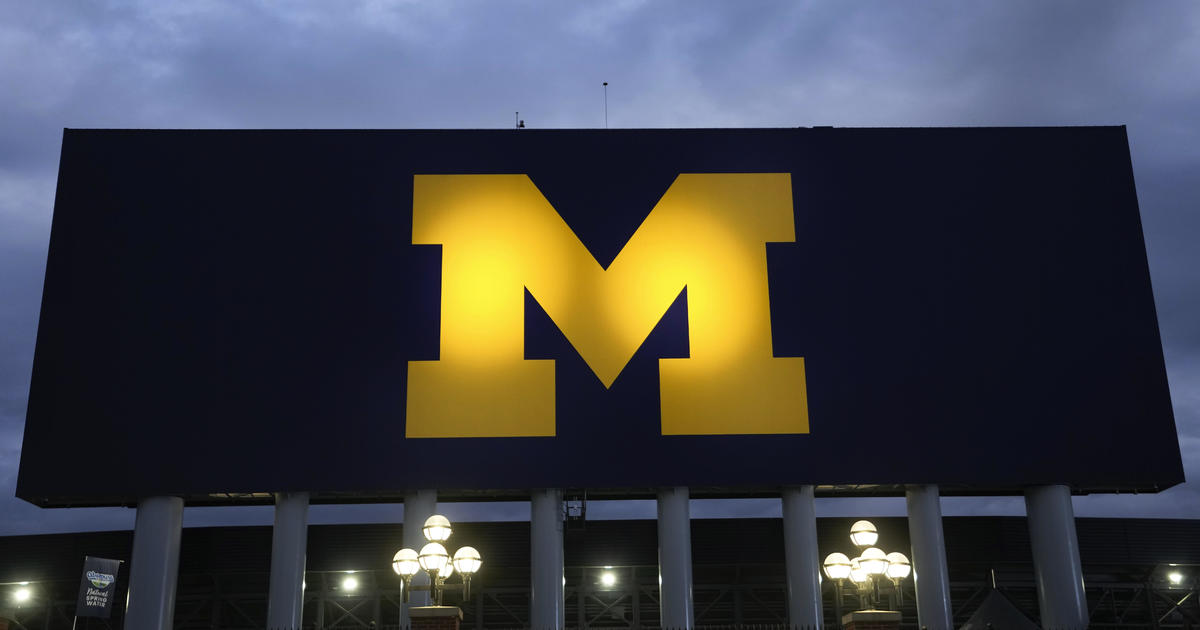Stabenow: Green Power Means Michigan Jobs
ANN ARBOR (WWJ) - The second day of the University of Michigan's conference on rebuilding Michigan's manufacturing base through green energy concentrated on how the public sector and universities can accelerate commercialization of new technology.
And it closed Friday afternoon with a pep talk from the public sector, in the person of U.S. Sen. Debbie Stabenow, D-Mich.
Michigan's junior senator said developing a comprehensive energy strategy for the United States is "about getting us off oil, it's about cleaning up our environment and protecting our world, and it's about jobs."
Stabenow pointed to the $2 billion in the 2009 federal stimulus for advanced battery manufacturing, much of which came to Michigan, and which "unleashed tens of billions of dollars in investment from the private sector, as it was intended to do. This is an important example of what we need to do in public private partnerships. Investments in clean energy technologies are absolutely critical."
Stabenow pointed out that American companies now compete not just with foreign companies, but with entire governments -- which heavily subsidize their companies' research.
For example, the Toyota Prius, which Stabenow said had "virtually all of the investment in research for batteries in that care done by the government of Japan to support their car industry." She said Germany, "not a low wage country," is ahead of the United States in clean energy "because of government standards and tax strategies and government help with financing."
And she said Michigan -- and UM in particular -- has been in the renewable power business for a long time. She said Charles Rush, an 1860 engineering graduate of UM, invented the arc light -- as well as building the first "wind dynamo," a gigantic 60-foot-tall, 40-ton windmill, in 1887. This original wind turbine powered 350 electric bulbs, two arc lights and several electric motors.
"I believe we have an incredible opportunity as a country and in Michigan," Stabenow said. "It's not only about wind generation and energy efficiency, which are important goals on their own. But when I look at a wind turbine, I see 8,000 parts, and we can make every single one of them in Michigan... We've got to make this not about Republicans vs. Democrats, but about the United States vs. China, Germany, Korea and India."
Audio from the UM event is at http://detroit.cbslocal.com/audio-on-demand/wwj-plus/.
Earlier, a panel on accelerating commercialization covered how university tech transfer offices and state and regional economic development agencies try to boost renewable energy.
James Baker, from Michigan Technological University's office of innovation and industry engagement, said his office measures its successes in terms of regional economic development impact. Ken Nisbet, director of the UM tech transfer office, said UM tries to pick winning technologies by listening to industry advisers and its "mentors in residence."
Panel moderator Thomas P. Lyon, of the UM Erb Institute for Global Sustainable Enterprise, called the state's growing battery industry the "crowning achievement of tax based economic development of Granholm administration."
In another panel on the role of government in economic development, Michael Finney, CEO of the Michigan Economic Development Corp. for the incoming Snyder Administration, said that administration would not simply cut business tax rates and then let the chips fall where they may.
"This is not about disarming," Finney said. "This is not about walking away from some of the wonderful things we have done in the past, the battery technologies and other things that in fact represent pretty interesting opportunities for us going forward. When we talk about not picking winners, we do that with glass half full ... it means all winners."
But Finney said the Snyder administration does want to have a greater emphasis on "keeping things simple, fair, and efficient. And we also want to create a robust entrepreneurial ecosystem."
Finney said Snyder's moves to fix the state's structural $1.5 billion-a-year budget deficit would "make the state a stable place so businesses don't have to wonder what their taxes are going to be next year."
Dennis Alvord, of the U.S. Department of Commerce's Commerce Connect program, talked about how Commerce Connect has tried to become a one-stop shop for the 70-plus Commerce programs that can help entrepreneurs.
And Jason Miller, of the Obama White House's National Economic Council, said renewables can be an important part of helping U.S. manufacturing recover from a decade in which it lost one out of three jobs in this country.
"We've had success adding manufacturing jobs in recent months for the first time in a decade, but we still have a long way to go," Miller said.
And he said government has a role to play not in picking winners, but in identifying broad economic sectors with strong growth potential.
"At every level of government there is a serious discussion about the role of government, including the role of government in job creation, near term and long term," Miller said. "There are a number of investments we need to make, and we need to be smart about the investments we make."


